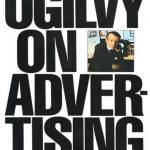They’re everywhere these days; those ridiculously low-priced coupon deals for everything from sumptuous 3-course meals to ‘spa treatments’ in dodgy parts of Kepong.
Value-for-money seems to be the favoured business model for many businesses nowadays. But how long before offering products and services on-the-cheap eventually becomes bad for business?

Yes, we all like bargains. But if the bargain does not live up to the intended expectations, most of us would rather pay slightly more the next time – be it for better quality or improved service.
Even if you are satisfied with a particular coupon deal; would you return to the same outlet and pay ‘regular’ price for the same thing? Which – if I may remind you – can be up to 70% more?
Highly unlikely.
If you’re a business, and thinking of jumping onto the coupon deals bandwagon to attract customers, consider these:
- Is it worth cheapening your brand or business by offering high discounts just to attract one-time-only customers?
- You might get a high influx of customers in a short period of time. Can you or your staff handle a flood of customers and serve them properly?
- You don’t usually make a profit, especially if you offer a high discount. Sometimes you won’t even break even. Seems like a pointless exercise.
- Don’t expect prolonged advertising mileage by offering coupon deals. The people who use coupons are bargain-hunters who forget you as soon as you go back to normal price.
- The non-bargain hunter customers (the ones that you really want as customers) will see you as desperate for business. Not the kind of image you want to portray.
So instead of ‘selling out’ your business to coupon deal sites, why not invest in promotions that are easy to create and implement. You get the kind of customers you want, and get to sell at the price you want.
You know who to talk to 😉







